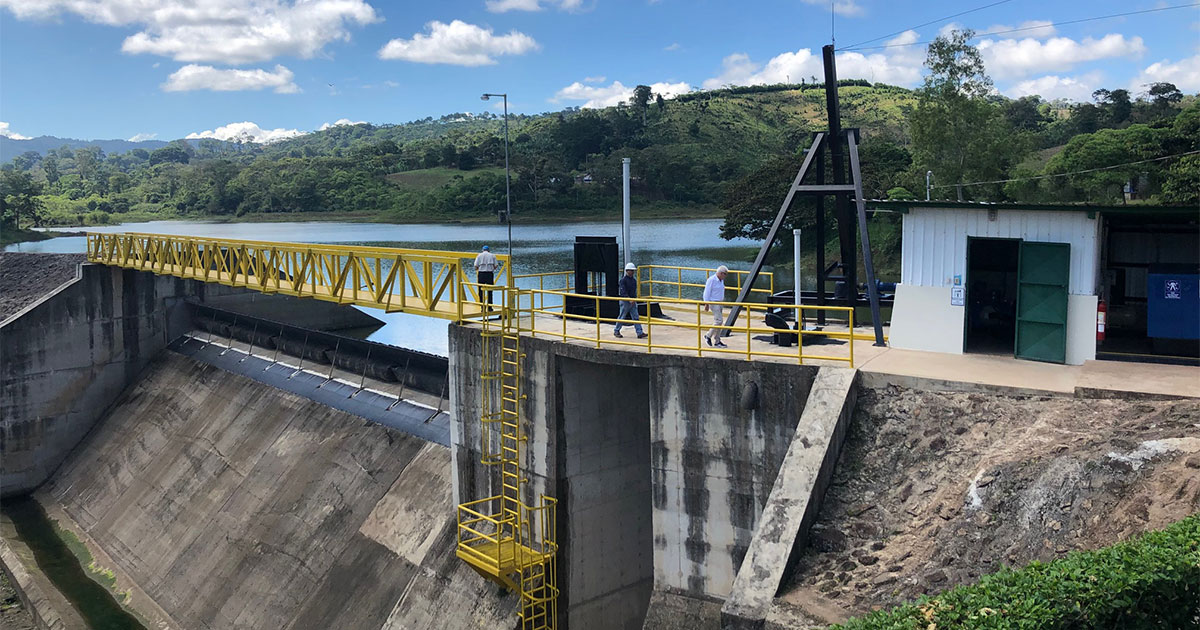How Sustainability in Entrepreneurship Helped Power a Nation

In 2006, Rodrigo Mantica ’96 was looking for his next big opportunity. He found it unexpectedly while reading the newspaper.
“Being an entrepreneur since a very young age, I have always been on the lookout for business opportunities,” he says. In the newspaper, an article discussed the urgent need for Mantica’s native Nicaragua to switch from costly fossil fuels to more renewable energy sources. Such a switch, the article argued, would be essential for the country’s growth.
Reading that article proved to be a fateful moment in Mantica’s career. The very next day, he went down to the office of the country’s Ministry of Energy and Mines, seeking more information about renewable energy. Mantica saw it as a chance to transform the economy and energy sector of his beloved Nicaragua. “It’s a poor country, but there is a lot of opportunity to make the country better,” he says.
For the next 13-plus years, the quest to create renewable energy sources filled Mantica with purpose. He would go on to establish two hydroelectric power plants. Together, they generate 19 megawatts of energy a day, enough to power roughly 200,000 households, and demonstrate the far-reaching potential of sustainability in entrepreneurship.
“It has been a long journey. It wasn’t easy,” says Mantica, the CEO of Interamerican Hydroelectric, which owns and operates the two plants. “Looking back, I am very satisfied with what we’ve created. I feel blessed.”
Urgent Attention Needed
Mantica has deep roots in Nicaragua. His family has been in business there for more than 60 years, working in real estate, commerce, and agricultural and automotive machinery.
Mantica was born in the country in the mid-1970s but left in 1979 due to political unrest. In the ensuing years, he lived first in Costa Rica and then in the United States before finally returning to Nicaragua in 1998 after his Babson College graduation. Just like his family, he was eager to conduct business in the country. “I wanted to continue in my father’s footsteps,” he says.
When he started looking into building hydroelectric power plants, more than 80 percent of Nicaragua’s energy needs came from petroleum, which was then at record highs, says Mantica. Such dependence on a pricey, imported energy source was hampering the economy. “The cost of energy was very high. It was a worry for many people,” he says. “Definitely, it was an area that needed urgent attention. We needed a change.”
It has been a long journey. It wasn’t easy. Looking back, I am very satisfied with what we’ve created. I feel blessed.
Rodrigo Mantica ’96
Building a hydroelectric power plant, however, is a slow, patience-testing process. All kinds of feasibility studies—topographical, geological, and environmental—must be conducted on a potential site. The support of the local community also needs to be secured, the necessary land bought, and financial partners found. Though the long process, Mantica stayed focused. “If you put your mind to things, you can achieve anything,” he says.
Construction on Mantica’s first plant, Hidropantasma, finally started on the Pantasma River in 2011. It began operating two years later and became the first privately owned power plant connected to Nicaragua’s national energy grid. The second power plant, San Martin, started construction on the Bijao River in 2017, and that plant became operational in July. The two plants combined provide about 3 percent of the 700 megawatts of daily energy demand in Nicaragua.
Sustainability in Entrepreneurship
Sustainability in entrepreneurship has meant a lot to Nicaragua. Today, through the efforts of people such as Mantica, the country receives about half of its energy through renewable sources. By comparison, just 17 percent of energy generated in the United States is from such sources, according to the U.S. Energy Information Administration.
Mantica believes the increase in renewable energy helped to fuel an economic boom in the country that lasted a decade or so. “You stop depending on the price of a barrel of fossil fuels,” he says. He is proud of what his power plants have meant to the country’s economy, not to mention to the environment and to local communities, which have benefited through new jobs and roads built as part of the plants’ construction.
“I am looking forward to doing new projects in the energy field,” he says. “I’ve learned to love it. It’s a great business.”




